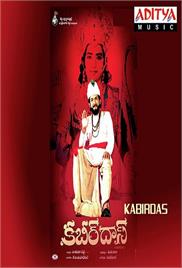Be Careful of Fake Websites. Always use HindiMovies.to domain & Join our Telegram Channel for Latest Updates.

Likes: 0
Views: 1.04K
There are many stories about the birth of Kabir. One of the non-controversial versions was taken as plot of the film. Neeru and Neema, a Muslim couple, traveling on a cart observes a child floating on a lotus leaf at Laharitara Lake near Kasi (Varanasi). They pick the boy up and named him Kabir. He grows around Muslim and Hindu areas, learning the differences. His Guru Sheik Taqhi teaches him about Muslim way of life and another Guru Ramananda Teaches about Hindu scriptures. As Kabir grows young, he tries to show the people about good and bad in each religion and asks them to correct their deeds. Instead of accepting his teachings they try to beat him and send him out of the village. Even then he won’t stop his style. Then both Hindus and Muslims complain about him to Nawab Sikander Lodi. The king tries to punish him in many ways but in vain. At last all recognizes his Divinity..
Released: 2003
IMDb Rating: N/A/10 (N/A Votes)
Genre: Drama, Hindi Movies
Stars: Gautami, Vijayachander, Prabha, Somayajulu J.V.
Directors: Raju VV
Writers: Raju V.V.
Year: 2003
Server 1 – Youtube
Server 2 – Youtube
Introduction to Kabirdas (2003)
Kabirdas is a 2003 Hindi drama film that offers a poignant cinematic exploration of the life and philosophy of the great Indian mystic poet and saint Kabir. Directed with a sensitive eye for historical detail and spiritual depth, the movie delves into Kabir's teachings on love, humanity, and the critique of orthodox rituals. This cinematic portrayal brings to life the timeless messages of Kabir, making his legacy accessible and relevant to modern audiences.
Plot Summary
The narrative of Kabirdas centers on the life journey of Kabir, portraying his humble origins, spiritual awakening, and the challenges he faces in promulgating his progressive ideas. Kabir, born into a humble weaver family, questions the societal divisions and blind faith practices prevalent around him. Through lyrical poetry and dialogic interaction with people from diverse religious and social backgrounds, the film traces his efforts to promote unity, tolerance, and a direct experience of the divine beyond rituals.
The movie unfolds as an evocative drama illustrating Kabir’s teachings, his relationships with disciples, and confrontations with orthodox religious authorities who feel threatened by his unconventional views. The storytelling weaves Kabir’s couplets and verses to reflect core themes of the film – equality, spiritual freedom, and critique of superstition.
Main Cast and Character Portrayals
Direction and Writing
The film is directed by a filmmaker deeply invested in historical and cultural storytelling, aiming to create a respectful yet engaging portrait of one of India's most beloved saints. The director's vision harmonizes with the thematic essence of Kabir’s poetry—advocating for inner purity and humanistic values.
Regarding the writing, the screenplay thoughtfully integrates Kabir’s original couplets and teachings, balancing historical elements with dramatic expression. The writer crafts dialogues that resonate on both intellectual and emotional levels, giving voice to Kabir's philosophy in a manner that is accessible and inspiring.
Music and Songs
Although Kabirdas is primarily a drama film focused on storytelling and philosophy, the soundtrack pays homage to Kabir's poetic heritage. The music underlines the spiritual tone of the film, featuring traditional folk instrumentation that complements the narrative's historical setting.
Since Kabir's legacy is profoundly rooted in his verses, the songs are essentially adaptations of his dohas (couplets), chanted or sung by folk and classical singers who bring an authentic feel to the film. The music's modest yet evocative quality enhances the contemplative atmosphere, inviting viewers to immerse themselves in Kabir’s mystical world.
Cultural and Cinematic Significance
Kabirdas stands as an important cultural artifact that not only celebrates the life of a spiritual giant but also challenges viewers to reflect on enduring social issues such as caste discrimination, religious orthodoxy, and the quest for spiritual truth. The film’s dramatic portrayal helps revive interest in Kabir’s teachings for a contemporary generation, bridging the gap between the past and present.
Beyond its thematic richness, the movie showcases strong performances and careful direction, resulting in a compelling drama that resonates with audiences interested in history, spirituality, and Indian culture.
Conclusion
In summation, Kabirdas (2003) is a thoughtfully crafted Hindi drama that presents a cinematic homage to Saint Kabir’s enduring philosophy. With notable performances by Vijayachander and J.V. Somayajulu, expert direction, and a screenplay enriched by Kabir’s own verses, the film invites viewers on a reflective journey into issues of faith, equality, and human values. Its musical elements honor the poetic tradition of Kabir, making it not only an educational experience but also a spiritually uplifting one.